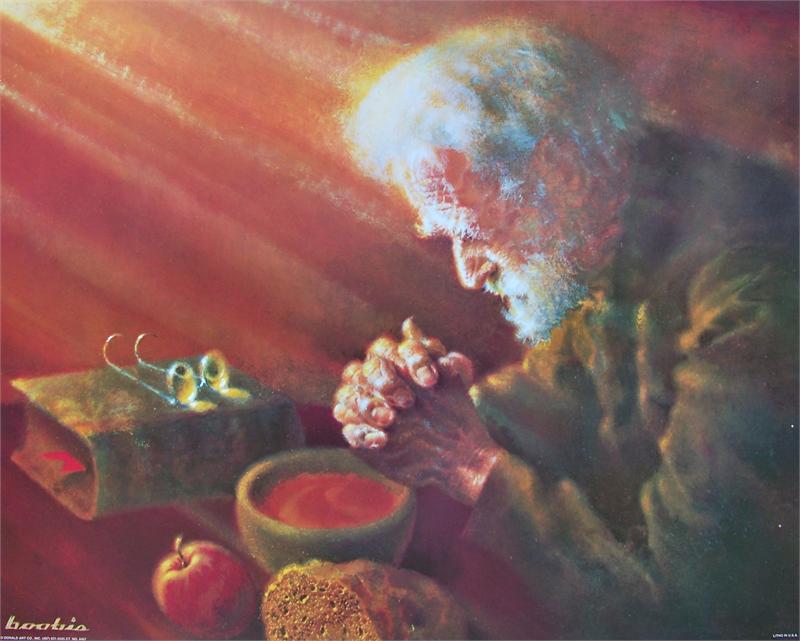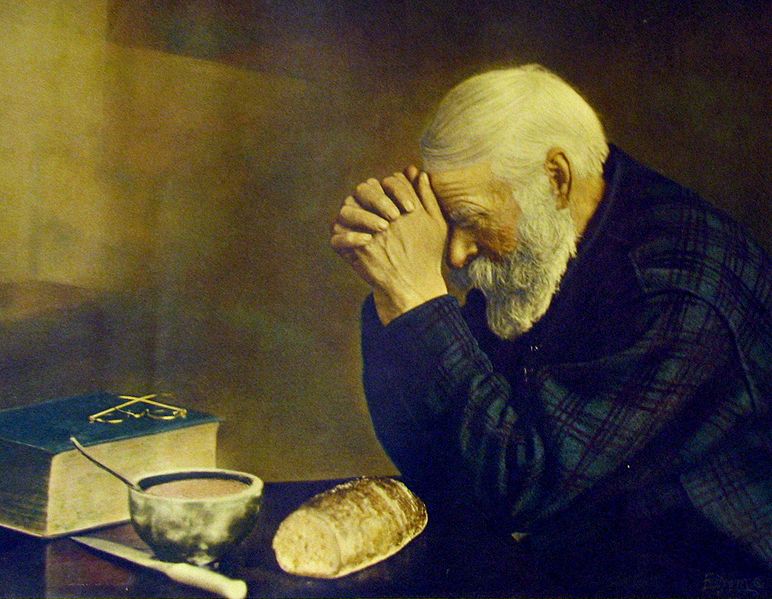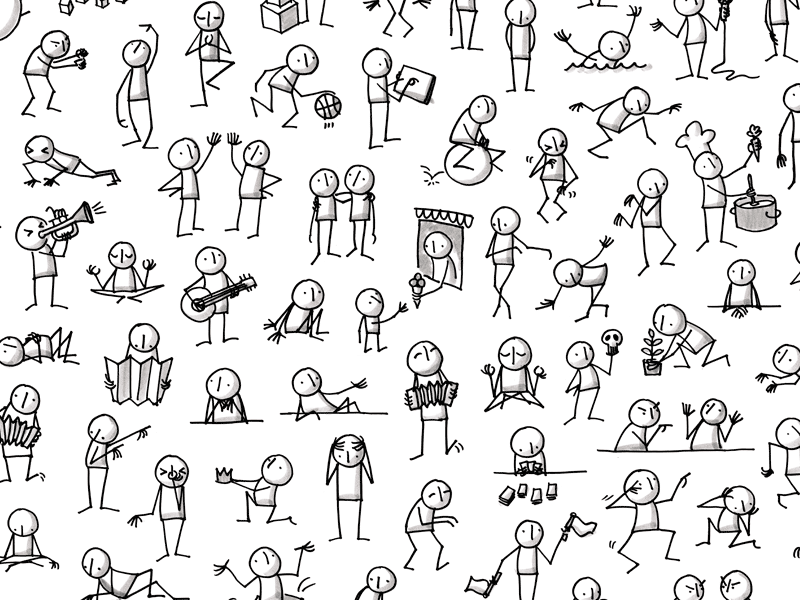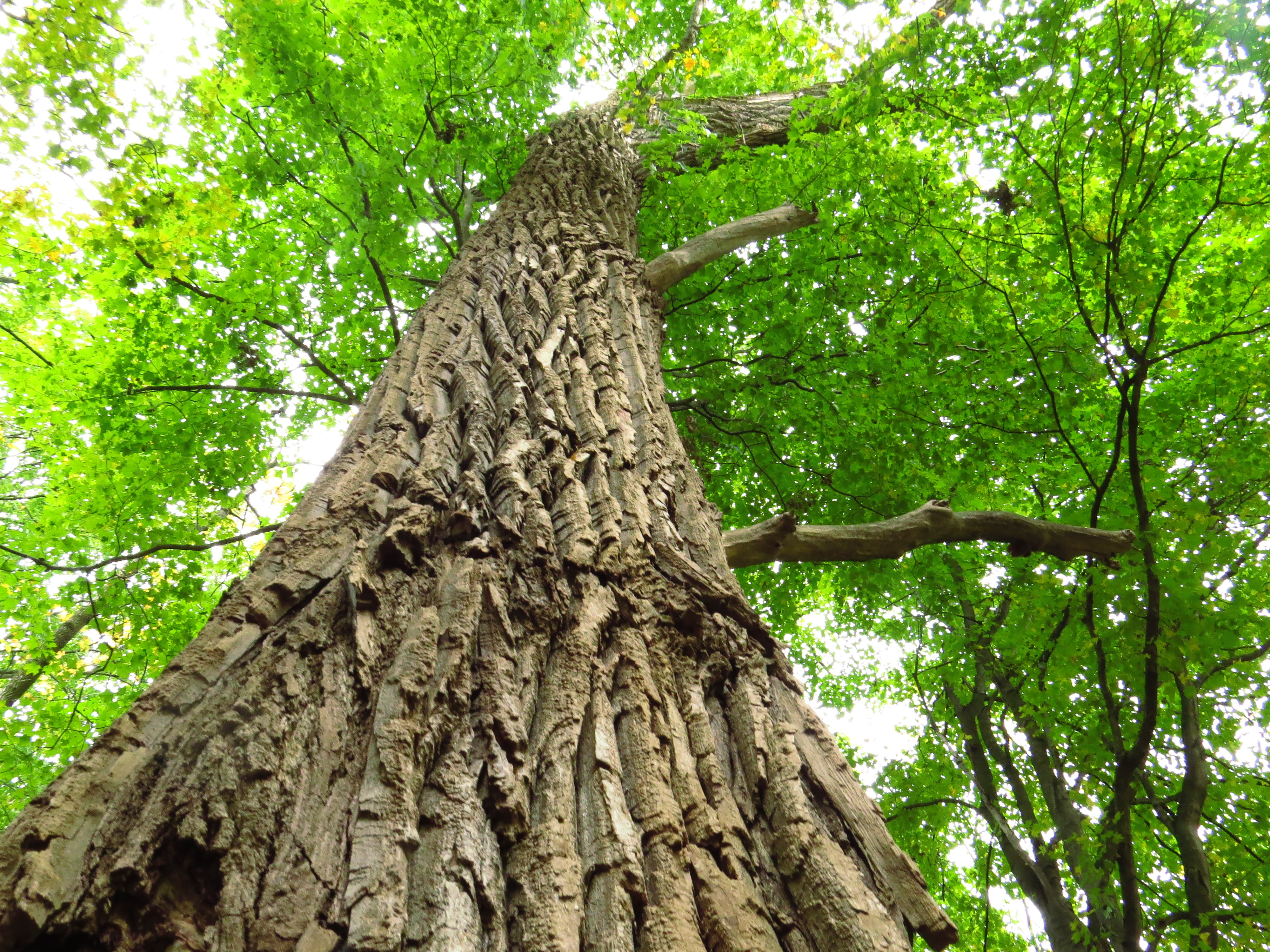The eating of blue-veined cheeses:
Monastic orders of the past were competent and celebrated cheese-makers. Their products were not only good for storage and taste, but had the added value of being “the stuff which was binded” – albeit from some remarkably questionable sources; alongside the prayers said during the setting!
However, the eating of blue-veined cheeses is particularly deleterious to the would-be religious, as it is representative to the being of a binded whole becoming infiltrated by an immigrant - and weakened thereby.
Social climbing is sociopathic. Class-consciousness is offensive to Christ. It is enthralling to see however that during the history of many great charities, within Religion, it has been the ‘higher’ classes which have rallied together, in ways that the lower could not hold the fervour for.
The desire to better oneself is admirable, yet the desire to be seen to be better than others is not. Social climbing is not confined to the wealthy or moderately wealthy. The poison begins in the lower classes who sadly dismiss the goodness within their own society – forsaking their humanity for a secondary sense of worth.
Once again we come to the theme of false-values opposing the forces which work ever within the religious, of true value. If our first reference is to Father God, then we cannot err - first counsel, first source of wisdom. Many folk believe that it is a harmless interest reading such literature as is gossip from unreliable sources – often the trivial respect given to the subjects implies that it is also a trivial matter considering them. However, if we lack insight as to another person and refer to events or characteristics which are of themselves unqualifiable, we are injuring our own sense of future discernment in the process.
False judgements mar our ability to reason. They compound and accumulate – because an untruth simply will not go away until it has been seen for what it is. This is why people often repeat untruths over and over, again and again – because the untruths are presenting back to the consciousness, which is given a choice in that moment to either further them or correct them, depending.
So we may gather to ourselves many, many such adoptions, that are seeking correctness, hampering the consciousness with the call to be righted. (See: Exercise 1: The Clearing of the Untruths). Therefore it is prudent to be cautious as to what material and ideas we entertain from the outset, as to whether or not they are worthy of the burden they will put upon us should they be falsehoods without a substantial source to truly qualify them.
Grail Christianity & Alchemy (All writings copyright © 1999-2002) Please Note: No individual should undertake the practices or any of its regimens without first consulting and obtaining the informed approval of a licensed medical practitioner or specialist. The author and publisher make no warranties as to the effectiveness of this book in each individual’s circumstance, be it a physical, psychological or medical. This book was first uploaded to the Spiritual Science Group (Yahoo) in 2002.
Translate
Wednesday, November 29, 2017
Chapter 13- Religious Studies: Contraindicated
Activities Contraindicated:
- Profiteering from spiritual exploits
- Profiteering from hope
- Profiteering from alcohols or narcotics
- The eating of blue-veined cheeses
- Sociopathic social-climbing
- The indulgence in tabloid gossip
Profiteering from Spiritual exploits can mean many things from commonplace fortune-telling to the sale of spiritual truth. There are many points to this calamity, as regards the ruination of useful talents and serious causes, attributable to a monied attachment, however today we are reviewing the concerns of the individual themselves rather than the consequences of their actions in this regard.
Inside the thinking of most folk there has to be a way of qualifying the value and worth of everything around them. This is usual to a developing discernment. We are constantly reviewing the price and cost of our involvements, and by doing so we are reasserting our choices and commitments within the world.
It is natural for a man to wish to qualify his life this way, yet for many the way of this qualification itself may come to supersede what was to be the end intention or prize originally sought for.
For example: I may count the number of heads in church to qualify whether or not the church is “reaching out” to people as I would hope. My prize might be that a certain salvation is won there for them … however, the number of heads really has nothing to do with one or more being salved! It may tell me of something to do with numbers of attendees, and I may qualify it in my mind as being relevant to salvation, when truly it is not.
The whole ‘counting’ thing is overrated! – as far as spiritual discerning goes a quantity of numbers can never relate to actuality in toto. Statistics are indicative only of themselves, and not of any real assumption in stead.
Truth is not worth more because people will pay for it, nor is it to be weighed by the dollar. The miser will never find the comfort he seeks by accumulating his wealth. Statistics refer only to the past, containing no essence or foreknowledge of the future.
Here we can enter in to the subject of selling hope and question its vagaries. One can offer or, at times, give hope, but once there is profiteering involved the grace which is Hope departs immediately.
You can witness this quite readily. Watch a man or a woman who is about to buy a product which they are being told will help beautify or fructify them. There is an excitedness, whilst also an illumination about them. Then, even before using the product, even before taking the package home, watch and see that illuminated quality dissipate from the point of the very transaction.
The hope expires when the individual believes they can purchase the promise for a fee. The fee has no basis in reality in relation to healing or enhancement. The link is broken immediately. Sadly it is often the hope which would have proved a good catalyst for inspiring the change which was sought for. Materially a product might be effective, but spiritually it cannot be received when money becomes involved. In this manner we can realize that medicines and foods are best given and received without monetary exchange.
Commerce, as a healthy animal, could be a most beautiful and useful beast. Eventually Mankind will feed from the milk from this creature – when it has matured. At present, commerce itself does not have the qualities that will one day spiritually imbibe it. It stops and starts – it is fixed in pockets which cannot or do not disperse as needed – and although it is young in the making, it has the constitution currently of an elderly and failing corpse. The heart is weak, the veins collapsed, the fat hangs heavy and the face sags at the prospect of yet one more greedy man. The infant Commerce is struggling with existence – malnourished and benign.
When folk are alarmed at the conservation issues within the natural world, they are intuitively also comprehending the condition of Commerce today. Generally speaking, the world issues to do with tree falls, wars and racial destitution are resulting from commerce in its present state of sickness.
True values do materialize wonderfully when folk work to counter these problems as best as they can. Yet spiritually speaking we have a system which of its own cannot qualify our life as well as it might – and is letting the whole of the complex world down.
The difficulty from the individual’s perspective of trying to profiteer, comes in the association immediately made real between themselves and the creature Commerce. Although we have a divine being in the making, at this point the corruption bleeds into any activity for which it is called to or involved in.
Added to this, when an individual, or corporation, becomes involved in the profiteering from alcohol or narcotics there is a further scoring upon the poor body of commerce – for when it is ill-used its failing does worsen. Equally this can be said for purchases and sales to do with any number of things injurious to man, however the entities associated with the ego-inhibiting substances fiercely and deleteriously afflict the creature Commerce. You can witness economic frailty within a race, country or institution in relation to its profiteering (not consumption) from narcotics or alcohol.
Thursday, November 23, 2017
Chapter 13- Religious Studies: Prayer
In all of my travels,
In times I've lived through,
In meetings and yearnings,
Through windows I’ve seen through …
I recognise this:
That His Presence was there
In my beginnings, to now, I know He is here.
Dearest Father God be with me,
May Your Breath and Life move through me,
May Your Word become within me,
And Your Love be proven in me, as in all.
Amen
Chapter 13- Religious Studies: Poem
A Poem
Our dear Mother Church,
Who, yes, is always inherently
Rent yet at this time,
We sense moreso …
With birth-pains of the New Christianity.
We’ve tried but cannot be just of thee
And barely even in.
For shepherds of another fold have we
(Thanks Father God)
Who strive with heart-won strength of clarity
To show the esoteric path ahead
And remove your priests’ obscurities
Which have sadly hidden our Christ from view.
Yet these two folds will ultimately be one.
Until such time we will also call from within thy choir
To thy blessed saints and martyrs near
For this harmony is my love’s desire.
Chapter 13- Religious Studies
Religious Studies
Dietary Exercise Suggested:
Eating alone … and with the contemplation of the invisible Host.
Commentary:
Although the exercise for this subject could well have been consistent with the theme of communal dining, and the sharing of the one foodstuff etc. we have chosen an aspect which hopes to embrace the invisible community, Religiosity Major, and the inspirational company therein as it becomes qualified in us.
What is perhaps not so easily reckoned with within the tangible world, is that there are many spiritual beings and departed individuals who glean experience from that of our own.
The experience itself does not (could not and should not) translate into a direct perception – i.e. seeing through our eyes, hearing through our ears, sensing as we sense – but it does commute via the impressionings gleaned in our summation of them.
What ‘speaks’ of us, and follows on to the invisible worlds is not that of what we ordinarily experience; partly because there are no means there for them to interpret physical sensations anyway. What speaks to them is that which is born of us through a secondary consideration – usually one of inspiration, curiosity or just plain out and out wonder!
There is a budhi aspect which Humanity is awakened to through its religiosity. With the animal this aspect presents itself within the relationship of parent to young, and then further on with pride or herd. A like sympathy will develop to the point that the animals do feel and intuit on behalf of one another. Not only can they physically sense each other’s emotional life – feeling their fear, exploring their aggression, romping into playfulness, or driving into fiercely determined peregrinations – the animals know the collective mood, and are affected by it greatly.
With men and women there is also the family as well, quite naturally, but adherent to this comes the greater family of the world to be known and understood. For in terms of our own spiritual natures, our state of religion can be verily measured by the sense of our own humanity. And interestingly enough this requires a talent and a tolerance which takes us out of our secular groupings and provings into a lifelong compassion which pledges for the human spirit itself – in all of its nakedness and innocence.
You see, we identify and choose many associates from differing quarters. With most of these folk we will be obliged to be respectful to who they are and what they defend. Yet, these choosings will always be defined by us – meeting the individuals or the groups in relation, and with status which is of the world.
In other words, I can know a fellow stamp-lover through our shared and acquired knowledge for philately, and our communicative understandings will be on a certain level respective to each other’s understandings.
Now, distinct to that form of fellowship is quite another. There is a fellowship we may come to Humanity by, and concurrently to our brothers and sisters also individually, through our relationship which is not by them or with them directly or respectively, but rather through our relationship with Father God. This is the difference between groupism, sameism, narcissism and Religion.
Religion takes us to the perception of Father God, that we may love, know and trust through His Eyes, as He does, with the Humanity around us. Our interpretive vistas are no longer restricted to that only of our own experience. Conversely also, the invisible community around us which supports His Kingdom’s Being is likewise affected by our gleanings as well.
During our exercise of eating alone we can further this thought with the ponderings of lofty and inspired contemplations, whilst nourishing ourselves. A favourite book or meditation – something which does not require great intellectual scrutiny (mind over stomach); but rather some literature or contemplation which is harmonising and relaxing to our beings.
The benefits from this practice should be considerable in themselves. This is not an attempt to realize or compare in abstract terms what we are doing, but a time we can take in simplicity for ourselves – soothing and feeding ourselves, with an inspiration along the way, making holy the nourishment which becomes new life within us.
Tuesday, November 14, 2017
The Therapies: Weaknesses Transformed into Strengths
Characteristic Weaknesses Transformed into Strengths:
Virtues are natural to Man, and when desired, when called upon, when prayed for sincerely, deliberately and needfully induced, their messengers will beckon, and their characteristics shall be grafted to our being. The weakness shall be restored into that which it was originally destined to become, as follows:
A fixation on death processes is primal to the pessimistic personality. At the core of the imaginations and subsequent perceptions the problem speaks of the soul in relation to a decaying world. It also speaks of finality of episodic endurance, as opposed to the endurance and continuum connecting the episodes perceived.
When a man has suffered from this fixation and has overcome it well, he is attributed to a great cyclic understanding. His perception becomes endowed with a comprehension of physics and numerative law, whilst also a sense of purpose for which all cycles are given to.
Bearing ill-will towards humanity is a sickness just as any observable physical frailty. Not only does it cause illness within the individual as a result, it can also be endemic to a condition usually brought on by narcotics, blood-poisons or spiritual exercises which have caused an organic displacement.
The reason for this is that an individual’s physical and astral interpretative comprehensions can be damaged in such a way that the individual has not the usual protections given to him from impinging influences outside of himself. It may not even be that he could be classed as ‘over-sensitive’ in an empathetic or specific way, but moreover just sensitive in general – and painfully so. As a result of this most everyone around them - and also the invisibles - become a constant aggravant experienced by them. The ill-will felt grumbles away as something of a moaning protest against this uncomfortable hardship known.
Coming to the Therapies and adopting their enlightened reasonings will provide for corrections within the physical and astral leakages as described. For the individual who has experienced this suffering, when the weakness has been transcribed, it becomes one of Prudence – whereupon the individual does not try to hurry into experience prematurely, nor unguardedly.
With respect to those who attempt to manipulate others, or require that they are the leader, there is a presumption of mistrust and pessimism placed upon all folk in general. This presumption assumes perhaps a caring attitude, but is misguided because it denies the freedoms which in truth are in place, regardless of their directings – at any time, ever.
Such wilfulness can become exaggerated where any or all behavior of themselves is excused by the individual who tries to manipulate and force others to do their will. Within himself he or she knows that it is indeed their own behavior which cannot be trusted and during their own excusing there becomes a heightened and animated accusing to follow!
These tendencies are eventually overcome by their own default, and when this is achieved the transgressions give way to great humour within the soul.
For when the will of another has been encountered, yet not known how to be with, the humour uplifts the fellow out from his accusiveness in a happy and warm response of humble perplexity.
Virtues are natural to Man, and when desired, when called upon, when prayed for sincerely, deliberately and needfully induced, their messengers will beckon, and their characteristics shall be grafted to our being. The weakness shall be restored into that which it was originally destined to become, as follows:
A fixation on death processes is primal to the pessimistic personality. At the core of the imaginations and subsequent perceptions the problem speaks of the soul in relation to a decaying world. It also speaks of finality of episodic endurance, as opposed to the endurance and continuum connecting the episodes perceived.
When a man has suffered from this fixation and has overcome it well, he is attributed to a great cyclic understanding. His perception becomes endowed with a comprehension of physics and numerative law, whilst also a sense of purpose for which all cycles are given to.
Bearing ill-will towards humanity is a sickness just as any observable physical frailty. Not only does it cause illness within the individual as a result, it can also be endemic to a condition usually brought on by narcotics, blood-poisons or spiritual exercises which have caused an organic displacement.
The reason for this is that an individual’s physical and astral interpretative comprehensions can be damaged in such a way that the individual has not the usual protections given to him from impinging influences outside of himself. It may not even be that he could be classed as ‘over-sensitive’ in an empathetic or specific way, but moreover just sensitive in general – and painfully so. As a result of this most everyone around them - and also the invisibles - become a constant aggravant experienced by them. The ill-will felt grumbles away as something of a moaning protest against this uncomfortable hardship known.
Coming to the Therapies and adopting their enlightened reasonings will provide for corrections within the physical and astral leakages as described. For the individual who has experienced this suffering, when the weakness has been transcribed, it becomes one of Prudence – whereupon the individual does not try to hurry into experience prematurely, nor unguardedly.
With respect to those who attempt to manipulate others, or require that they are the leader, there is a presumption of mistrust and pessimism placed upon all folk in general. This presumption assumes perhaps a caring attitude, but is misguided because it denies the freedoms which in truth are in place, regardless of their directings – at any time, ever.
Such wilfulness can become exaggerated where any or all behavior of themselves is excused by the individual who tries to manipulate and force others to do their will. Within himself he or she knows that it is indeed their own behavior which cannot be trusted and during their own excusing there becomes a heightened and animated accusing to follow!
These tendencies are eventually overcome by their own default, and when this is achieved the transgressions give way to great humour within the soul.
For when the will of another has been encountered, yet not known how to be with, the humour uplifts the fellow out from his accusiveness in a happy and warm response of humble perplexity.
The Therapist dances with Life in graceful compromise. They are both charming and charmed; pertinent, yet patient, encouraging, yet with the discipline and compassion that withholds their own will from that which they seek to coax into fruition.
Chapter 12- The Therapies, Exercise 3
Becoming aware of Criticisms
- Observation
This is a weekly exercise in which we become aware of the criticisms offered by ourselves and by others and respond to them with the addition of saying something incredibly pleasant.
This can be done with humour, a sense of the fantastic and be disproportionate to the concern … responding with a tangible, palpable, surge of happy insight. It need not have anything whatsoever to do with the subject at hand. Quoting cheerful scripture, reciting exciting poetry or thoughtful, inspired conjectures … these and other zealous pronouncements can be regarded as ‘invited’ by each and every criticism encountered.
The results can be observed.
Monday, November 13, 2017
Chapter 12- The Therapies: Exercise 2
Exercise 2
Cartoon dialogues – cooperation
Tools required:
- Paper
- Pen
Choose a friend and attempt to convey all of your conversation through drawings. Agree on a time beforehand for which no words will be used, and then begin!
Chapter 12- The Therapies: Exercise 1
Exercise 1
Adopting a tree
Tools required: - Finding a special tree
For this exercise we are to befriend a tree which hitherto has not had a special significance for us. This is to be a new tree to us, although preferably one which has been in the world for at least forty years or so.
When you have identified a tree that you should like to be your special tree, go to it on the first day and count the main boughs which stem from the trunk.
Acknowledge the tree by exclaiming something complimentary to it.
Upon your second visit count the number of branches which stem from the boughs. Before leaving the tree, pronounce to it again, that which you think best describes your appreciation for its presence.
On the third visit you can count the leaves. This does not have to be the entire amount of leaves, but upon any given branch you can summarize. If there are no leaves you may count the twigs. Before you depart tell the tree of your admirations. You can sing them if you wish. If you have difficulty bringing some compliments to mind to voice ... it would be best if you went in search of another tree.
Subscribe to:
Posts (Atom)






















